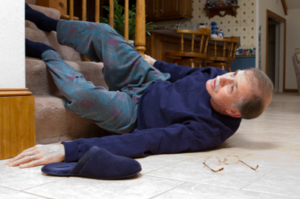Senior Care: How to detect elder abuse
Senior Care: How to detect elder abuse

Statistics show that, with an increasing population of elderly as a result of the Baby Boom generation, elder abuse is more prevalent than ever. One study recognized that for every case of elder abuse reported to agencies nearly 25 go unreported.
While you may suspect that a relative is abusing your elderly love one is some way, it’s also important to watch out for elder abuse that comes from care facilities.
Elder abuse can come in several forms: physical, emotional and financial and neglect.
Signs of physical abuse
- Bruises, black eyes
- Marks on body like welts, cuts and open wounds
- Sprains, dislocations (like a shoulder) or broken bones
- Injuries that are healing but were never treated
- Rope marks or burns on hands and feet (could mean an elder has been tied up or restrained)
- Broken eyeglasses or frames
- Sudden change in behavior
- Not wanting to be alone with caregiver
- Caregiver not letting anyone visit the elder alone
- Running out of prescription medicine too quickly or having prescription medicine that looks like it is not being taken like it should be (bottle too full)
- The elder tells you he or she is being physically hurt
Signs of emotional abuse
- Being in an upset or agitated state
- Becoming withdrawn and not wanting to talk or interact with anyone
- Unusual behavior like rocking, biting or sucking (usually thought to be symptoms of dementia)
- The elder person tells you he or she is being mistreated
Signs of neglect
- Poor hygiene, dehydration, malnutrition, bed sores that aren’t being treated (if bedridden)
- Health problems that aren’t being treated
- Unsafe living conditions (no heat, electricity or water, faulty wiring)
- Poor living conditions (dirt, fleas, soiled bedding, clothes and bedding smelling like urine/feces, improper clothing, lice on the elder)
- The elder person tells you he or she is being neglected
Financial abuse
- The disappearance of valuable objects.
- Withdrawals of large amounts of money, checks made out to cash, or low bank balances.
- A new “best friend” and isolation from other friends and family.
- Large credit card transactions.
- Signatures on checks look different.
- A name added to a bank account or joint accounts that are newly formed.
- Indications of fear of caregivers.
Preventing elder abuse
Older adults can take these steps to prevent abuse:
- Be socially active and avoid spending too much time alone. Being cut off from other people can put you at a higher risk of abuse. Keep in touch with family and friends.
- If you are not happy with the care you are getting in your home, speak up. You have a right to change. This applies to all caregivers — even family.
- If you live in a long-term care facility and are not happy with your care, speak up. If you do not have family members who can help, contact your state’s Long-Term Care Ombudsman. The ombudsman’s purpose is to be your advocate and to help you.
- Plan for your own financial future with a trusted person or persons. Make sure that your finances are in order. It’s also important to tell family, caregivers, and doctors your health care wishes. For more information on financial and other future planning, see Planning your future.
Seeking help For elder abuse
If you suspect that your elderly loved one is a victim of elder abuse there are ways to help. The National Center on Elder Abuse offers many resources, including a help hotline. Locally in Nebraska there are a wealth helpful resources for protecting the elderly as well.
Physicians Choice Private Duty currently serving Omaha, Eastern Nebraska and Western Iowa provides seniors and their families a complete understanding of the available care options and helps families maneuver through the challenges of the system. All Physicians Choice Private Duty services are directed by registered nurses or social workers with no long-term contracts. Contact us today for help with your senior care needs.
“Physicians Choice Private Duty solves the problems families face in finding home health care providers they can trust. Providers who will focus on strategies that keep parents in their homes. To learn more about our health care services, visit https://private-duty.pchhc.com/services/“



